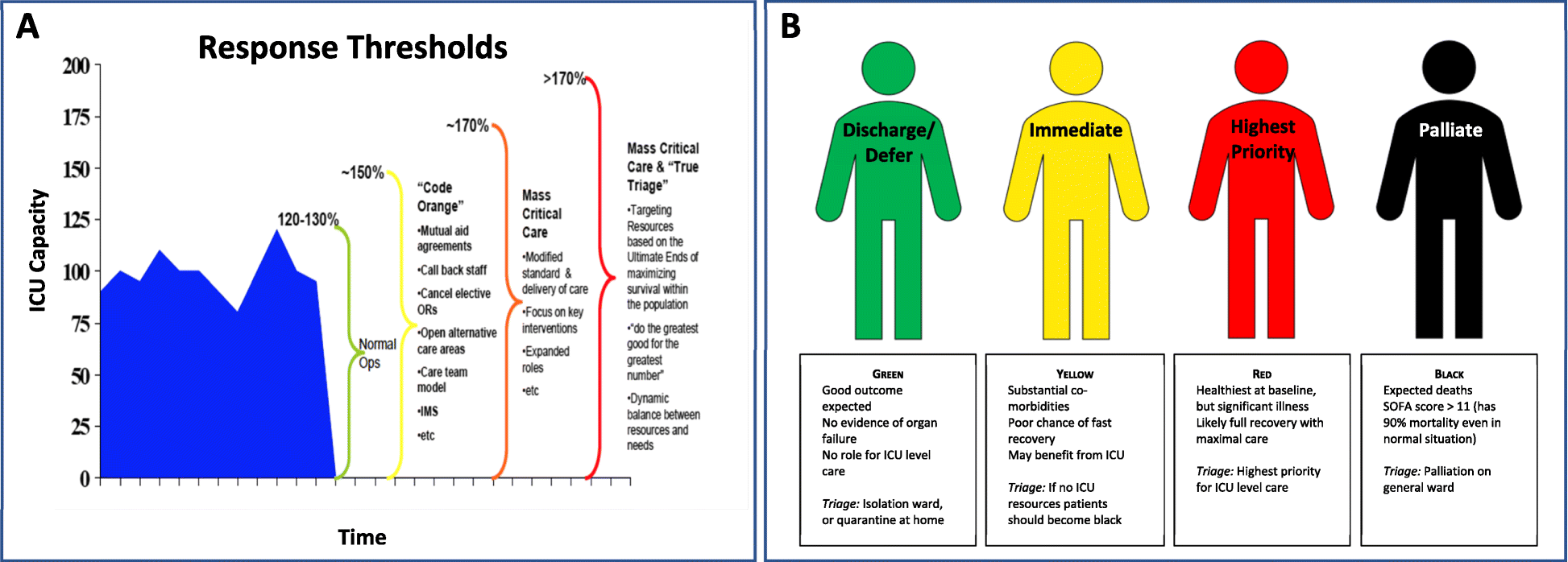Articles: pandemics.
-
Comparative Study
Mortality of critically ill patients with severe influenza starting four years after the 2009 pandemic.
Background: In Reunion Island, influenza is not considered a serious illness despite significant mortality in intensive care unit (ICU). We assess the post-pandemic mortality of influenza by comparing it to other community-acquired pneumonia in our ICU. Methods: Retrospective, descriptive, and single-centre cohort study. ⋯ Twenty-four patients underwent ECMO, 17 with VV-ECMO. Conclusions: Mortality in patients with influenza pneumonia was higher than the expected mortality in community-acquired pneumonia. Although generally considered benign, influenza is a deadly infection in ICU patients in Reunion Island.
-
What is this?
Kain & Fowler's prescient review from October 2019 sets out how intensive care units should prepare and respond to the next pandemic, both practically at a hospital level and at a wider health-system. Although the focus was on an influenza pandemic, the advice is readily applicable to the SARS-COV-2 pandemic.
Background
They note that not only have we seen regular influenza outbreaks in addition to other viral pandemics, that due to increased urbanisation, population density, global travel and living proximity to animals, there is rapidly increasing global risk of a viral pandemic.
"When considering preparation for the next pandemic, it is not a matter of if it will occur, but rather a matter of when." – Kain & Fowler
They provide an overview of historical influenza pandemics over the last century, most recently with the 2009 H1N1 swine-flu pandemic, killing 300,000 people.
- Despite this history we remain unprepared for a pandemic.
- From an ICU perspective, conservative models predict >170% ICU resource utilisation due to a pandemic. They note that most health systems would struggle with even this optimistic surge.
- SARS experience in Canada, despite only 251 cases, critically stretched hospital and ICU resources.
What preparation do they recommend?
Kain and Fowler suggest global focus on:
- Pandemic surveillance.
- Prepare health-system scalability to manage surge: equipment, physical space, human resources, and system (eg. stepped triage plans).
- Prepare for mass vaccine production.
- Better coordinate and integrate communications.
- Streamlined research and ethics proposals for rapid initiation.

They highlight the importance of intensivists being involved in strategic planning, so as to coordinate ICU responses for "...triage, clinical care, and infection control." – noting that during SARS 20% of infections were in healthcare workers, and hospitals themselves became important sources of transmission.
Final word...
The IHR Committee's review following the 2009 H1N1 pandemic is now only too obvious:
summary“...the world is ill-prepared to respond to a severe influenza pandemic or to any similarly global, sustained, and threatening public-health emergency.” – International Health Regulations Committee (2011)
-
Overview of influenza infection, focusing on outcome and complications in critically ill patients. We also discuss relevant elements in immunopathogenesis and their role as predictors of severity. ⋯ The present review summarizes current knowledge on pathogenesis and clinical manifestations of severe influenza. Immunological dysfunction during viral infection correlates with severity and mortality among ICU patients. A theranostics strategy should be implemented to improve outcomes.